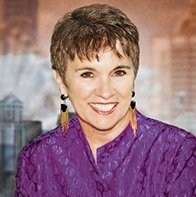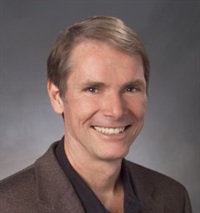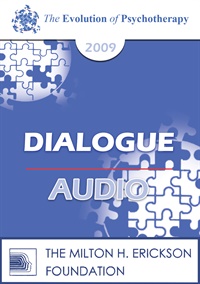EP09 Dialogue 11 – Addictive Behavior – Claudia Black, PhD and Robert Dilts
- Average Rating:
- Not yet rated
- Topic Areas:
- Addiction | Dialogues | Psychotherapy | Trauma
- Categories:
- Evolution of Psychotherapy | Evolution of Psychotherapy 2009 | Pioneers in Couples and Family Therapy
- Faculty:
- Claudia Black, PhD | Robert Dilts, BA
- Duration:
- 1 Hour
- Format:
- Audio Only
- Original Program Date:
- Dec 12, 2009
- License:
- Never Expires.
Description
Description: This session unpacks addictive behavior through psychological and NLP perspectives, revealing its profound impact on individuals, families, and mental health. It covers comprehensive treatment strategies, the role of trauma, co-occurring disorders, and the value of group support, offering insights across both personal and systemic levels.
Educational Objectives:
- Given a topic, to describe the differing approaches to psychotherapy, and to identify the strengths and weaknesses of each approach.
*Sessions may be edited for content and to preserve confidentiality*
Credits
Handouts
| Timestamped Transcript (918 KB) | 22 Pages | Available after Purchase |
| Ericksonian Learning Snapshot (264.4 KB) | 2 Pages | Available after Purchase |
Faculty

Claudia Black, PhD Related Seminars and Products
Claudia Black, Ph.D., is internationally recognized for her pioneering and cutting-edge work with family systems and addictive disorders. Her work with children impacted by drug and alcohol addiction in the late 1970s fueled the advancement of the codependency and developmental trauma fields. Dr. Black’s passion to help young adults overcome obstacles and strengthen families built the foundation of the Claudia Black Young Adult Center. Not only is Dr. Black the clinical architect of this groundbreaking treatment program, she is also actively involved with the treatment team, patients, and their families.
Claudia is the author of It Will Never Happen To Me, Changing Course, My Dad Loves Me, My Dad Has A Disease, Repeat After Me, It's Never Too Late To Have A Happy Childhood, Relapse Toolkit, A Hole in the Sidewalk, Depression Strategies, Straight Talk, The Stamp Game, Family Strategies, Anger Strategies, Deceived: Facing Sexual Betrayal, Lies and Secrets, The Truth Begins With Youand her newest title, Intimate Treason: Healing the Trauma for Partners Confronting Sex Addiction. She has produced seven audio CDs addressing issues of addiction and recovery. They are A Time for Healing, Putting the Past Behind, Triggers, Emotional Baggage, Trauma in the Addicted Family, Imageries and Letting Go Imageries. She also has over 20 DVDs for professionals to use working with families and clients.

Robert Dilts, BA Related Seminars and Products
Robert Dilts, has been a developer, author, trainer and consultant in the field of Neuro-Linguistic Programming (NLP) - a model of human behavior, learning and communication - since its creation in 1975 by John Grinder and Richard Bandler. A long time student and colleague of both Grinder and Bandler, Robert also studied personally with Milton H. Erickson, M.D., and Gregory Bateson.


